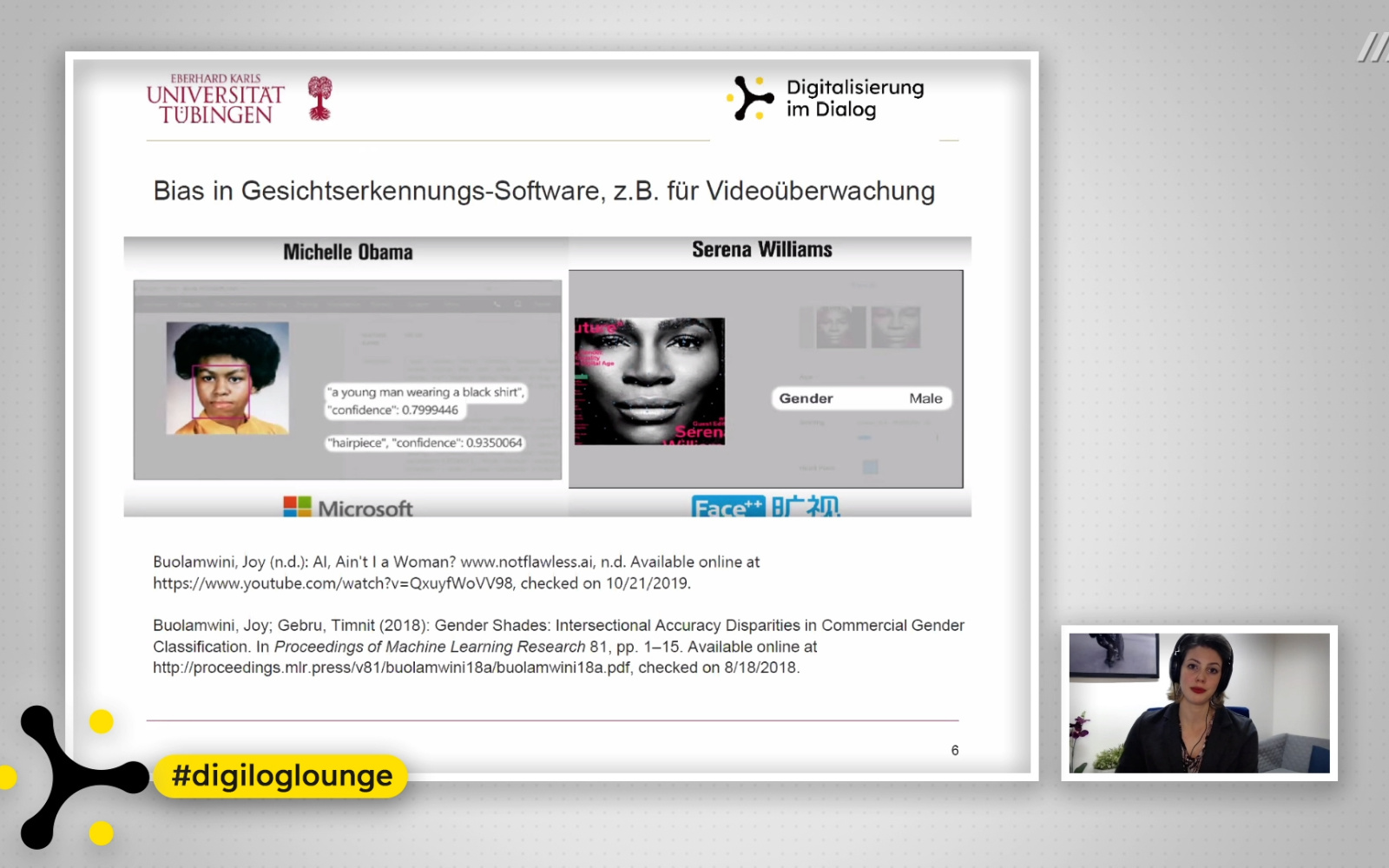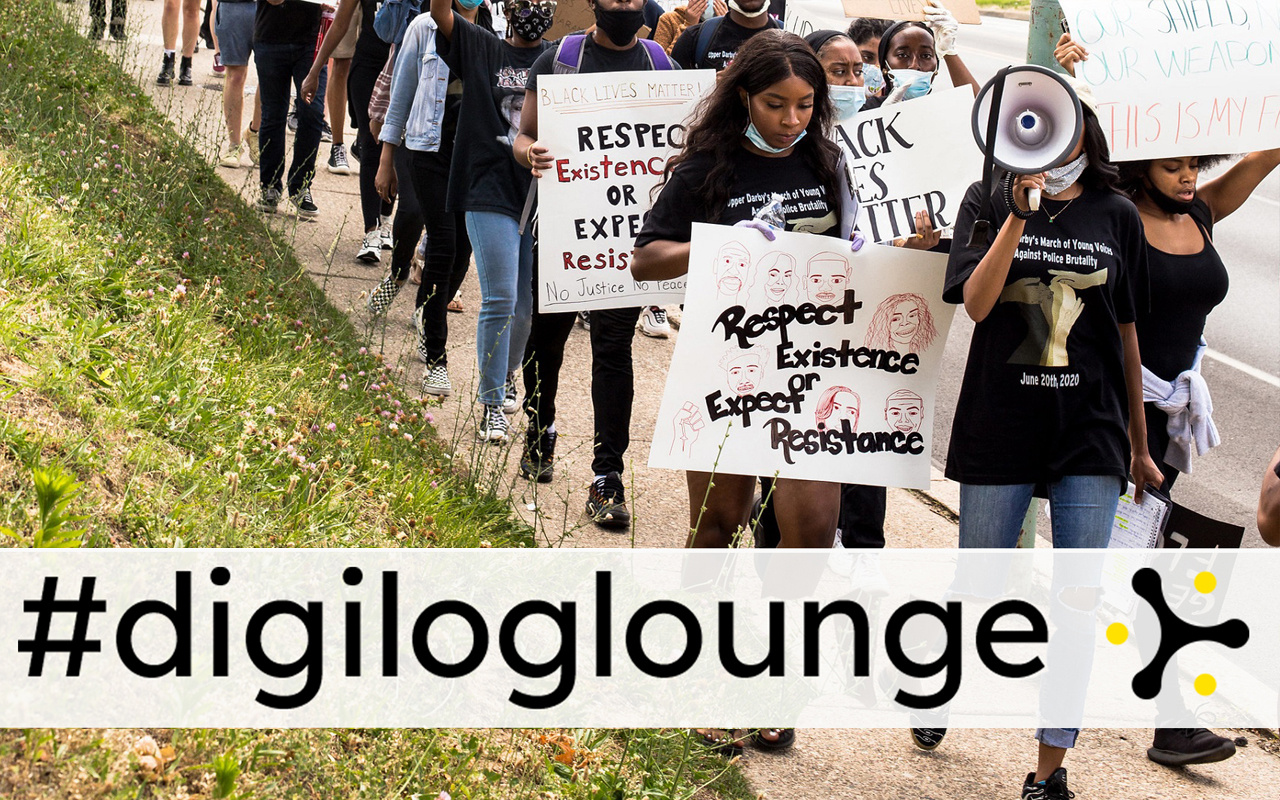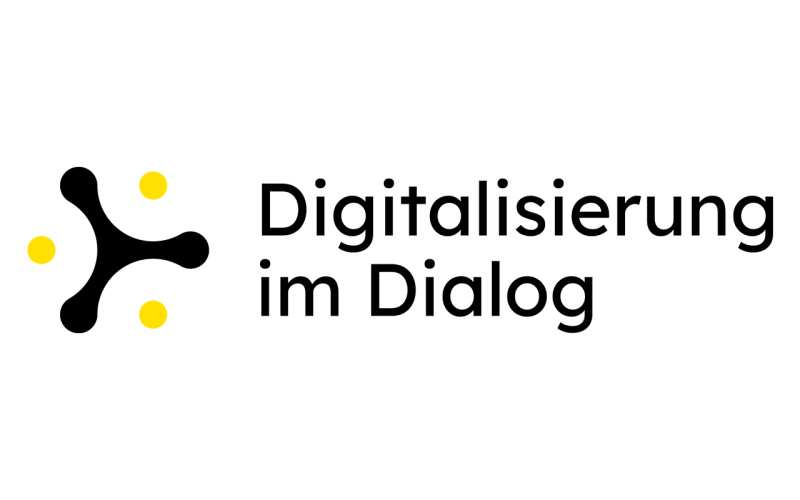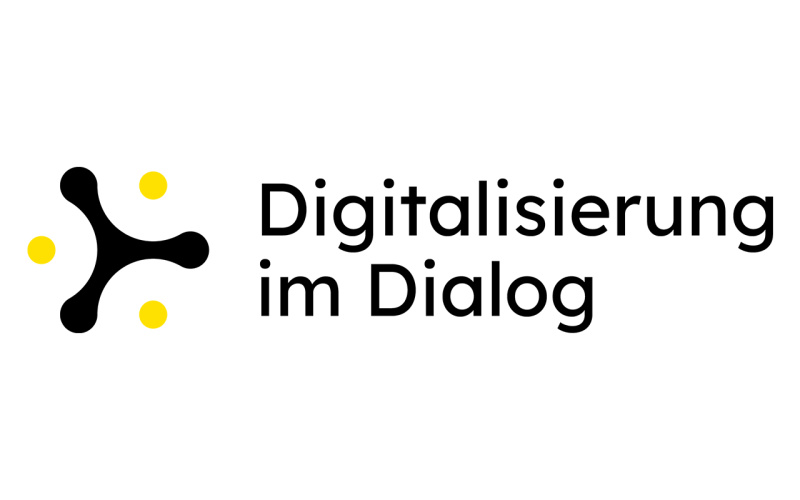- Event
Digiloglounge Digital
Black Lives, Trans Rights and Algorithms – How technology influences structural discrimination
Thu, November 19, 2020 5:00 pm – 6:00 pm CET
- Location
- Online
As part of the #digiloglounge discussion series, our researchers Laura Schelenz and Regina Ammicht Quinn will talk with Sabine Faller about the problem of unjust algorithms.
Our society is characterized by structures of inequality. Whether man or woman, young or old, West or East, city or country – our everyday reality can sometimes differ considerably from one another. This depends on the structural advantages and disadvantages we face in each case. Structural inequalities are embedded in our political and social institutions. They result in unequal and unfair treatment of different social groups. This is for example the case with racism or (hetero)sexism.
Increasingly, science is addressing the problem of how structural inequalities are consciously or unconsciously inscribed in modern technologies. Technology can even sometimes reinforce structural discrimination against certain groups. This particularly affects people who are marginalized in society anyway. This is related to the development of algorithms.
Algorithmic systems are computer models that are trained to solve a specific task using data sets. Often these data sets themselves have distortions, for example by having a high proportion of data on white people but only a small proportion of information on people with dark skin color. But there are also personal assumptions and prejudices that motivate development teams to design technology »for« specific groups of people. In doing so, the needs of less considered groups are neglected.
This talk deals with structural discrimination through technology. It discusses several case studies, including the discrimination of black women by face recognition software or the discrimination of transgender people at airport security checks. In the process, larger connections of today's technology development become more visible. The talk refers to the Black Lives Matter movement in the USA and discusses its relevance in the context of the topic. Approaches for a fairer development of technology will be presented, such as those of the »Design Justice« network.
The event is part of the #digiloglounge discussion series. Once a month, experts from digilog@bw will give an insight into their digital research topics and answer questions in the video livestream!

Digiloglounge Digital
The event is accompanied by the telegram group t.me/zkm_digiloglounge. We cordially invite you to ask questions in the chat of the group and to join the discussion!
Note: In order to join the chat group you have to register with Telegram in advance. Here you can find instructions.
Laura Schelenz is a research assistant at the Centre for Ethics in the Sciences and Humanities (IZEW) at the University of Tübingen. She is doing her doctorate in American Studies with Prof. Astrid Franke in Tübingen. Her research is interdisciplinary and works at the interface of technology development and diversity or gender studies. She studied American Studies and Peace and Conflict Studies in Heidelberg, Hartford, Frankfurt and Budapest.
Regina Ammicht Quinn is Professor of Ethics and speaker of the International Centre for Ethics in the Sciences and Humanities (IZEW) at the University of Tübingen. She also founded and heads the Centre for Gender and Diversity Research (ZGD) at the University of Tübingen together with Prof. Ingrid Hotz-Davies. She studied Catholic theology and German language and literature, wrote her doctoral thesis on the ethics of theodicy and habilitation on body, religion and sexuality.
Sabine Faller is a research assistant in the Department of Museum Communication at the ZKM | Karlsruhe. Her focus is on the conception and implementation of workshops, projects and educational programs in the fields of media art, digital education and online learning - currently for the research project "Digitalisierung im Dialog - digilog@bw".
External Event Website
Imprint
- Moderation


